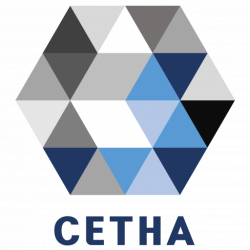| Round Table Discussion |
09:45 – 10:50 |
| E-Learning in Higher Education |
Prof. S. C. KONG |
|
This panel presentation will share the latest developing university-wide e-Learning policy at The Education University of Hong Kong (EdUHK) for supporting the EdUHK community to advance e-Learning experience and digital competency in the digital era. Currently, EdUHK is scaling up the efforts on advancing technology-supported learning and teaching through the second e-Learning policy “E-Learning and Digital Competency Goals and Implementation Strategies”, which is developed in line with the university’s Strategic Plan 2016-2025 and Learning and Teaching Plan 2016-2019. With the goal of preparing EdUHK graduates to become competent teachers and innovative professionals in the digital era, this e-Learning policy plans to expose students to various practices with fundamental roles in the digital world, and to help them gain an effective understanding of the principles and operations of computing. This e-Learning policy covers implementation strategies and initiatives in five major areas for fostering active, constructive and interactive learning with the use of digital technology. First, university-wide support will be provided to enhance learner-centred learning, learner-initiated learning, and to develop the e-Learning and digital competency of students. Second, students will be facilitated to become creative and digitally engaged professionals with e-Learning and digital competency required to excel in their future careers. Third, professional development support will be provided for academic/teaching staff in pedagogical design and practice, as a means to enable active, constructive and interactive learning for students. Fourth, capacity-building opportunities will be provided for academic/teaching staff in order to encourage curriculum innovation and implementation for a more effective approach to empowering student learning. Fifth, a smart and connected learning environment will be built up and maintained at the university by providing the appropriate physical settings, connectivity infrastructure, e-Learning platforms and innovation start-up facilities to maximise opportunities for interactive and seamless learning and teaching. The implementation strategies and initiatives under this e-Learning policy are expected to sharpen EdUHK community’s e-Learning competency for learner-centred and learner-initiated learning, as well as their digital competency to groom creativity, innovation and entrepreneurship. |
|
| Learning Begins at the End of Your Comfort Zone | Prof. Ricky Y. K. KWOK |
|
Classroom lectures, semester-long courses, bricks and mortar are passé; learning online is unquestionably the new norm for 21st century learners. The sooner we embrace it, the greater chance we have in equipping our students for the digital economy. However, such a paradigm shift is inevitably pushing us out of our comfort zone. For example, after lectures go online, what should we do in the face time? In this short presentation, the speaker will share experiences in trying to implement genuinely effective technology enriched learning. |
|
| Virtual Classroom, Real Learning |
Dr. Henry Y. K. LAU |
|
There are times when virtual reality is seen as merely gimmicks for gamers and futuristic Sci-Fi artifices; nowadays, with the rapid development of technology in computers and information systems, software and the Internet, sensors and devices, the impact of virtual reality to our everyday life has become a reality. The deployment of virtual reality or VR technology has become one of the very attractive, and in some cases, indispensable means for ‘serious undertakings’ including design and analysis, information visualization, operations training and skill qualification, teaching and learning etc. VR systems ranging from super hi-end multi-screen Cave Automatic Virtual Environment or CAVE-based systems to consumer grade head mounted devices sold in high street shops are readily available. VR not only appears in national laboratories or the silver screen, but in the hands of school kids for learning new knowledge and every day entertainment. In fact, the idea of virtual reality is not new as medieval artists and early-days film makers have long been using the concept of VR to show their audiences what exists in their minds. The amazing features of tele-presence and immersion that underpin the fundamental of virtual reality were innovated with the use of panoramic images, perspective drawings, binocular viewing devices, etc. to produce the sense of depth and space, whereby creating an environment that simulates the physical presence in an imaginary world, and even letting users to live in that world. Today some VR systems go as far as vividly creating a host of sensory experiences including stereoscopic 3D images, surround sound, haptic touch, smell, taste, motion and other interactivities that present in our everyday life. The current boom of VR is also boosted by investors where virtual reality is being identified as one of the major tech themes, with a potentially huge global market. With VR technology providing a radically new experience to users, VR will open up new opportunities in science and engineering, creative arts, education, social media, entertainment and many more. This talk describes the venture of using VR in the domain of teaching and learning, in particular, the process of knowledge delivery and skill-based training that may be more direct and cost effective when compared to conventional means. Through sharing the experience of actual deployment of VR in classrooms teaching as well as professional training, it is hope that lessons are learned and insights are gained for the better adoption and enjoyment of VR in future e-teaching and e-learning. |
|

